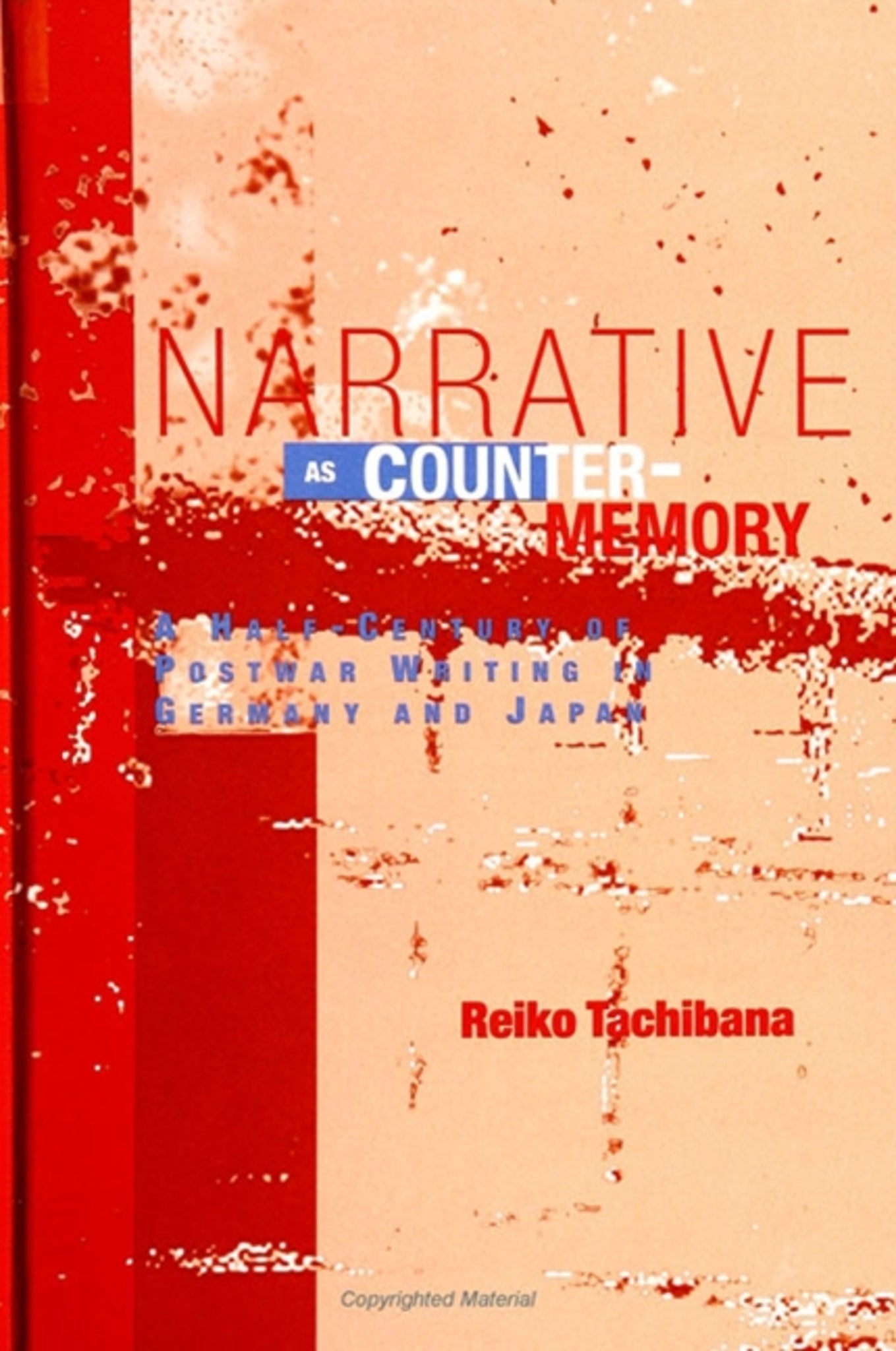We're sorry. An error has occurred
Please cancel or retry.
Narrative as Counter-Memory

Some error occured while loading the Quick View. Please close the Quick View and try reloading the page.
Couldn't load pickup availability
- Format:
-
06 August 1998

A pioneering study of German and Japanese postwar fiction, providing a broad cultural basis for understanding a half-century of responses to World War II from within the two societies.
CHOICE 1999 Outstanding Academic Books
The wartime and postwar cultural histories of Germany and Japan show similar experiences of defeat, occupation, and then the reconstruction of powerful societies. Little previous research has examined the literary works that reflect these contacts and parallelisms. For the first time, this book offers an extensive comparative study of German and Japanese narratives that serve as a form of "counter-memory," in Foucault's phrase, for the two cultures. Rather than attempting to present objective or comprehensive views of history, these narratives draw upon personal memories to offer subjective, selective, and individualistic reports. They provide an alternative (or "counter-memory") to more official versions of World War II and its aftermath. Major writers such as Mishima Yukio, Ibuse Masuji, Oba Minako, Gunter Grass, Uwe Johnson, Christa Wolf, and the Nobel Prize winners Oe Kenzaburo and Heinrich Boll are set in the context of lesser-known writers, including a nine-year-old child, a medical doctor, a woman who served as a journalist, and a former prisoner, to provide a broad cultural basis for understanding responses to the war from within the two societies.
This book combines a broad historical scope with detailed examinations of important individual texts, with both aspects securely set on a firm foundation of historical and literary scholarship. The rhythm of alternation between synthetic generalizations and close textual explication (yielding interpretive insights while providing lucid and economical exposition and summary) allows for carefully balanced and integrated comparisons.


"As the author points out with a sense of urgency, the age of the writers who have direct experience of World War II is coming to an end. It is very meaningful at this point of human history to reassess their works from a comparative viewpoint that treats the issues of war beyond national boundaries. Comparing several works systematically, the author successfully demonstrates the very similar development of post-World War II narrative in Japan and Germany. This book urges us to reexamine the significance of personal memory that opposes official history, of rewriting it in fictional literature, and of thereby rendering the past continuous for the present and the future." — Masaki Mori, University of Georgia
"Though most of the individual essays are contributions in their own right, the main importance of the book is twofold: its use of a comparative methodology, and its application of that method to postwar German and Japanese literatures. This field of inquiry has been developing steadily for the last ten to fifteen years, but this work will figure as a watershed study that will define the field." — Neil H. Donahue, Hofstra University
Preface
Acknowledgments
Note on Japanese Names
1. Introduction: Contexts for a Half-Century of Remembering
Historical and Literary Contexts
Critical Contexts
Lines of Convergence—and Difference
2. Evoking the Ruins: The Re-creation of Immediacy
Genbaku Bungaku in Japan
Ota Yoko and Hara Tamiki
Ooka Shohei
Trümmerliteratur in Germany: Wiechert and Borchert
Heinrich Höll: Trümmerliteratur and Beyond
Synopsis
3. The Achievement of a Distanced Perspective
The Obsession to Destroy Monuments: Mishima and Böll
Grass's Tin Drum and Oe's "My Tears"
The Documentary Novel: Ibuse Masuji's Black Rain
Synopsis
4. Expansion in Time and Place
The Internationalized Documentary Novel: Uwe Johnson's Anniversaries
The Internationalized Folktale Novel: Oba Minako's Urashimaso
The Rewriting of Ancient Legend: Christa Wolf's Cassandra
The Rewriting of One's Own Story: Oe's "Trial"
Synopsis
5. The End of the Line
Notes
Bibliography
Index



